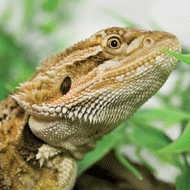New centre to offer a refuge for reptiles

“Whilst rehoming is central to the NCRW’s existence, it will also provide a gold standard for reptile welfare."
A new centre for excellence in reptile welfare is set to open in Kent later on this year, offering refuge and care to reptiles and amphibians, and aiming to find ideal new homes for them.
The National Centre for Reptile Welfare (NCRW) will be able to rehome reptiles from anywhere in the UK, with animals being moved in and out of the centre through an established logistics network, according to the Pet Gazette. The move was announced by the Pet Charity and Hadlow College and will be developed in partnership with the Pet Industry Federation and the Reptile and Exotic Pet Trade Association.
Tim Wass MBE, chair of the Pet Charity, is quoted by the Pet Gazette as saying: “Reptiles are now the fourth largest group of pet animals in the UK after dogs, cats and fish. As with the keeping of any animals, there is always a need for rehoming and rehabilitation.
“The Pet Charity has a wonderful opportunity to pioneer this exciting new project and to be part of a solution which matches up new owners with unwanted reptiles.”
Chris Newman, trustee of the charity and project co-ordinator, added: “I have for many years felt that a centre which provides a rehoming service for reptiles is long overdue, and I am delighted to be in a position to see such a project come to fruition.
“Whilst rehoming is central to the NCRW’s existence, it will also provide a gold standard for reptile welfare, something which is fundamental to the project, given the centre’s partnership with educating the next generation of animal management graduates.”
The project was introduced to the public at Hadlow College lambing weekend on 11-12 March and will be fully launched in mid-2017.



 The latest
The latest